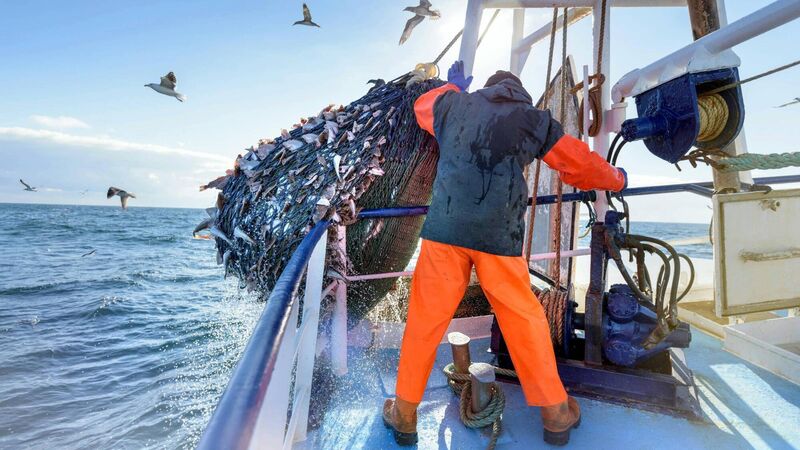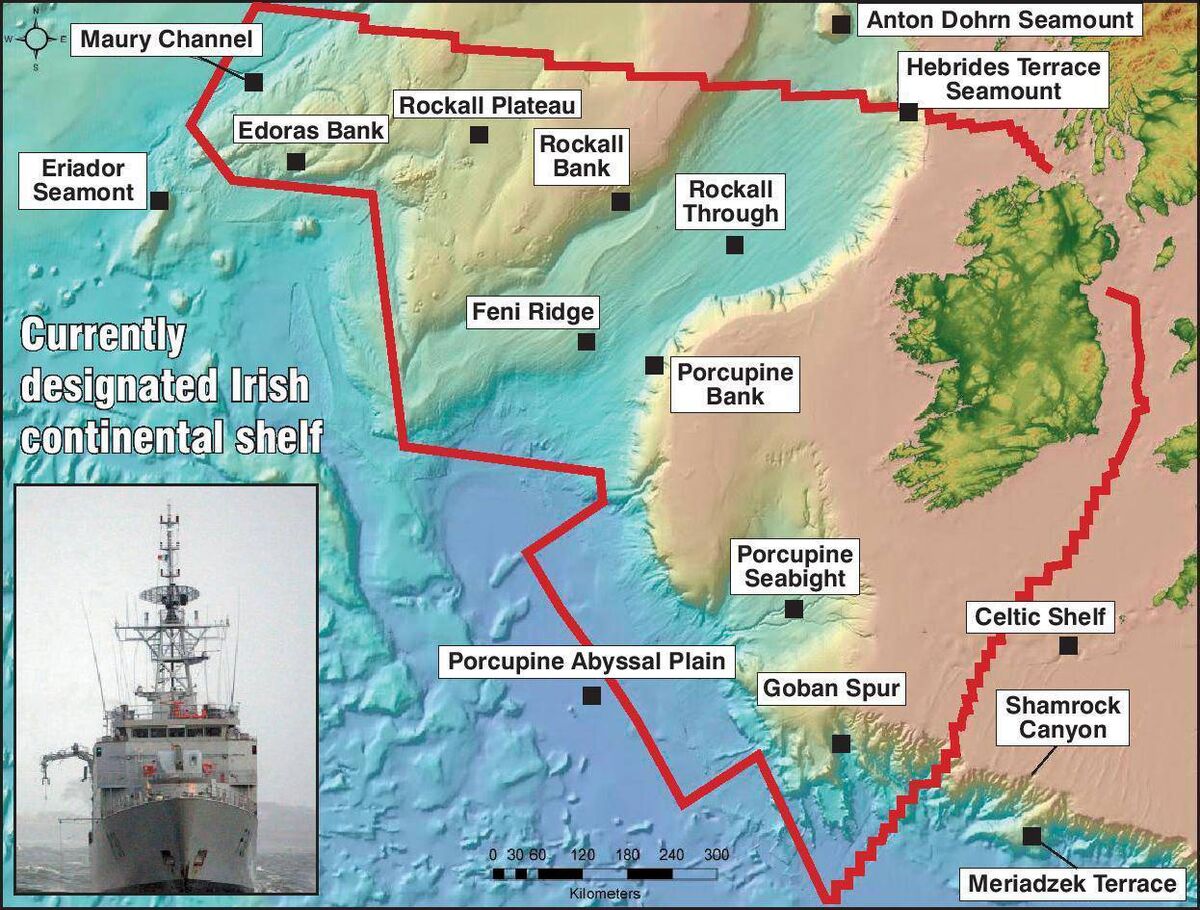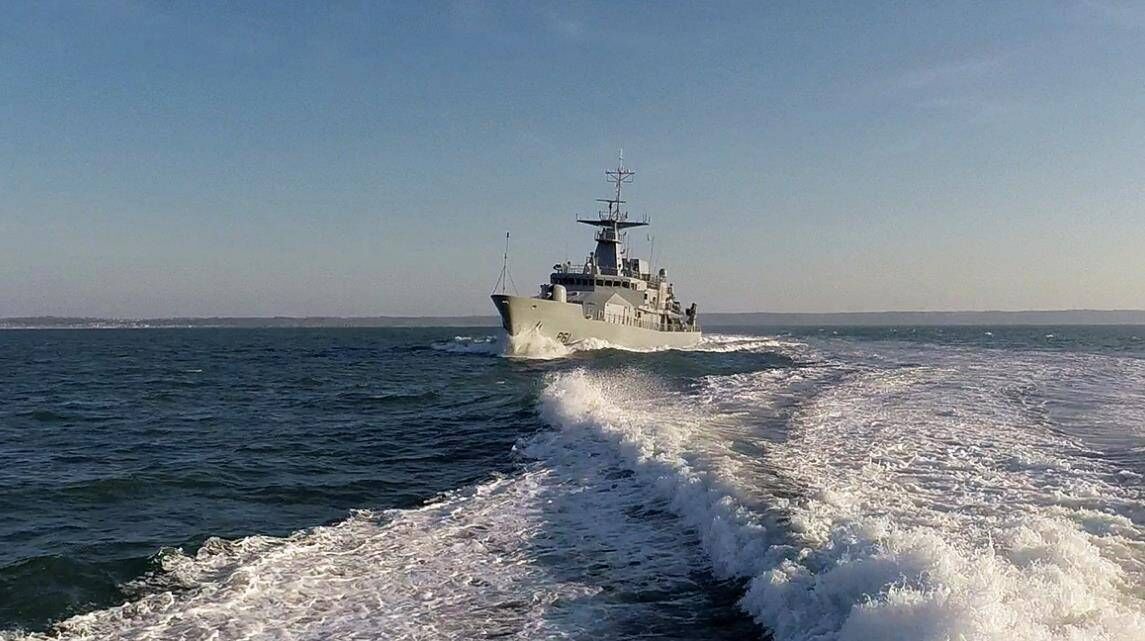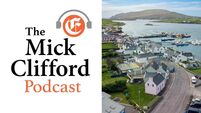Special Report: Massive underfunding ‘severely constricts’ ability of Naval Service to carry out operations

The sheer scale of the task facing the Naval Service in protecting our vast maritime area of responsibility would be a daunting challenge at the best of times.
But that challenge is made all the harder by the limited resources it currently has and the projection it's likely to have four ships off operational duties by the end of the year due to the manpower crisis.
Our State territorial waters go as far as the 12 miles limit, where a garda has the same powers of arrest as he or she would have in Athlone or anywhere else on dry land.
However, Ireland’s EEZ (Exclusive Economic Zone) extends to 200 miles offshore and covers an area of 220 million acres, which is 10 times the size of our landmass.

It is an area we claim for the right to explore for gas, oil and managing other natural resources – which include fish.
This area is, however, open to fishermen from other EU countries as we are an EU member state. The fear is that they may flock here in far larger numbers if Britain bans them from her waters post-Brexit.
The Naval Service is responsible for operating the State’s Fishery Monitoring Centre (FMC).
The White Paper on Defence 2015 states that Naval Service and Air Corps personnel are empowered by statute as Sea Fishery Protection Officers to carry out inspections at sea and to enforce fisheries legislation and regulation.
Both wings of the Defence Forces are currently operating without a fifth of the personnel they need.
The FMC commits to the Naval Service continuing to patrol the entire Irish EEZ and, periodically, beyond these limits to protect specific fisheries in accordance with international commitments.
These commitments come as part of our membership of the North-East Atlantic Fisheries Convention, basically monitoring a gap between the Irish/EU-controlled waters and those of other States including Iceland, Norway, the Russian Federation and the Danish-controlled Faroe Islands and Greenland.
RACO general secretary, Commandant Conor King, whose association represents Defence Forces officers, said the 2015 White Paper on Defence “is telling”, noting what the navy's resources should be, given the vast area it has to cover.
It states: 'In light of operational demands, the maintenance of a modern eight-ship Naval Flotilla is a minimum requirement.'
The drawing up of this White Paper was overseen by Simon Coveney, who was minister for defence at that time and is now back in that role.
Comdt King said RACO has consistently raised the issue of Defence Forces retention and conditions of service and linked these to operational capability.
The Naval Service doesn't just have responsibility for policing fisheries. It has a myriad of other functions and is called upon by several different departments and organisations to fulfill roles for them.
At one end of the scale the Department of Justice may ask it to intercept a major shipment organised by international drug cartels which is passing through our waters.
Such requests in the past have resulted in some very high-profile seizures.
The Naval Service has also been called on to intercept arms shipments coming into the country or being transited elsewhere.
However, at the other end of the scale, Met Éireann relies on its ships to provide it with weather data while out at sea.
The Department of Transport may ask it to tow a stricken merchant vessel, to safety or get involved in search and rescue missions when ships might have sank or run aground.
Only a week ago, a Naval Service ship prevented an ecological disaster off the west coast when a merchant vessel laden with more than 30,000 cubic tonnes of fuel lost power and was drifting towards rocks. The LÉ Niamh managed to tow her to safety.
It also has to keep an eye on the Kinsale gas rigs and an undersea cable which transmits huge amounts of data between Europe and North America.

Fears were expressed last February that Russian intelligence officers had been sent here to inspect the cables with a view to either tapping into them for information, or seeing how easy they would be to sever if a major conflict broke out.
Currently the Naval Service is 200 short of the 1,094 minimum strength it is supposed to have and there are gaps in many key areas.
It only has 60% of the lieutenants it requires, has 20 unfilled posts for leading electricians, 18 for electronic technicians and 28 for petty officer engine room artificers serving at sea.
Recruitment isn't keeping anywhere near the pace needed to match the number of people leaving the service.
Meanwhile, it has emerged that a special recruitment drive designed to attract former serving personnel to re-enlist in the Defence Forces has been less than effective.
The recruitment drive was pitched in the most part at helping the country out during the outbreak of the Covid-19 pandemic.
Hundreds of people applied to rejoin, but not one ex-enlisted person has rejoined the Naval Service to date.
PDForra president Mark Keane, whose association represents enlisted personnel in the Defence Forces, said the lengthy delay in processing their applications had led many to take up employment elsewhere.
Mr Keane, who serves as a petty officer at the Naval Service headquarters in Haulbowline, said he knows of two ex-colleagues who wanted to rejoin but were so frustrated by the wait they decided to take up employment elsewhere.
He said the manpower crisis in the Defence Forces has now reached a point where the government has to act immediately to stem the tide of people leaving the navy in particular.
"Despite all their sophistication, ships are made redundant without the trained crews to operate them. We highlighted a long time ago that this crisis was coming and believe me we get absolutely no satisfaction in being proved right. Our people cannot wait any longer for proper remuneration," Mr Keane said.





